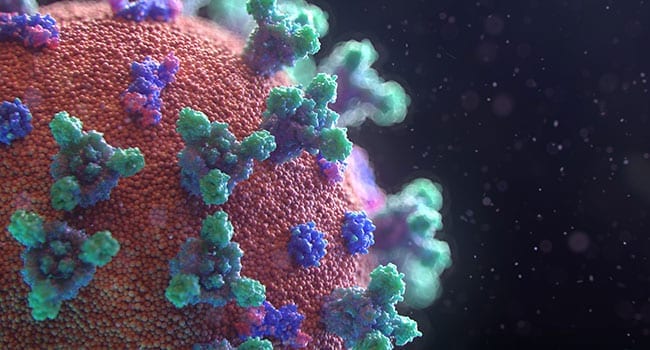You want to plan your family vacation, and you had your sights on visiting Las Vegas. But with all of the scare of the Coronavirus going on you;re are not sure if you should just take advantage of Grande Vegas casino bonuses combined with some fun local activities.
President Trump is saying he expected a vaccine to be ready “soon”. But other politicians are saying that it can be at least 18 months away before we could possibly see a vaccine. So who is right and what is going on?
Politicians, don’t take any of them seriously
Unless you have been living in a bubble, the United States is currently in the middle of the most heated presidential elections in US history. So, if the statement is coming out the mouth of a politician, take it with a grain of salt. About half of what they are saying is probably true, and the rest is politics.
Should you then believe what I am going to say?
Whenever I am reading an article and I am trying to understand what is true and what is BS, I want to know who is doing the talking. And what knowledge and professional experience are they bringing to the discussion.
I am a software engineer, who specialized in the area of working in pharmaceutical research and drug submissions, including vaccines.
At Merck, I worked on a team that was responsible for documenting and testing all of the software that was involved in the drug approval of the varicella vaccine (chickenpox vaccine). I am the one who proved that the software that was used to process all of the data that was gathered by the research scientists did what the research scientists claimed that it did.
Another company that I worked at, the company wrote the software that pharmaceutical companies used to organize and submit all of their data to the FDA. I was the programmer that converted the FDA’s (Food and Drug Administration) very detailed (1000 different individual parts) requirements of what exactly they were expecting in a drug or vaccine submission into software code.
So although I am not a doctor, I am very knowledgeable about what is involved in the final approval of a drug or a vaccine by the FDA.
History of the time frame of a drug or vaccine submission
In the early 1990s, when drugs were submitted to the FDA for approval, truckloads of data was physically sent to the FDA. Imagine three tractor-trailers filled from the top to the bottom with paper and other “stuff”, and that is what we are talking about.
And somebody at the FDA had to go through all of that “stuff” before a drug or vaccine could be approved. I do not know exactly how long it took for a drug to be approved in 1990 because I was not involved in that part of the process at that time.
Around 1995-2000, the FDA started to accept PDF submissions. First, it was an option, and then it became a requirement. The days of tracker trailers driving up to the FDA offices were gone, but it still took, on average, 3 years for a drug to be approved for mass production.
Around the year 2000, the FDA changed its procedures, so instead of a company doing all of their research and then submitting everything, all at once, at the end of the process, they were allowed to submit things piece by piece. This change reduced the timeframe for an average drug submission from 3 years to 18 months.
Where is the 18-month figure coming from the CDC?
The 18-month figure from the CDC (Center for Disease Control) is coming from the average time frame it takes for a vaccine or drug to go through the FDA approval process. But the CDC is not in charge of drug approvals or vaccine approvals, so the only thing that they can tell the public is averages.
Since the official average is 18 months (or more), that is the only thing that the CDC can tell the public without entering into the world of lying to the public. The 18 months is also assuming that things go through without any unexpected hitches, and the FDA does not tell the drug company to repeat something or provide more data or other changes.
Is Trump lying when he says there will be a vaccine “soon”?
The first clinical trials in China began around February 5, 2020. Do not know if it has officially ended yet.
“…two new clinical trials are scheduled to begin in March [2020]”. (dated February 26, 2020)
“two more” means that they have already done the first one and it was successful. So two more clinical trials, taking another month, would be April 2020. Then the data has to be analyzed.
Next, the FDA has to step in. Just because the drug company says, “It works”, the FDA (federal government) says, “We don’t believe you. Show us everything.” That everything is going to be gone over with a fine-tooth comb.
So which number is right?
The answer is that they are both right.
The 18-month figure is an average figure. That figure can be cut down by a specific drug being put to the front of the line. It can also be cut down by assigning additional people to evaluate the data.
But there are some things in the process that cannot be sped up. Checking antibodies 3 months in the future, 6 months in the future, 12 months into the future, etc. Although companies can run simulations and make expected predictions, nothing is going to take the place of seeing in real-time, under “normal” conditions, if something is or is not effective.
Summary
Trump is right in that it looking as though there will be a vaccine that can be said “its works”, “soon”. But it still might take 18 months for the FDA to give full approval for mass use, available to everybody.
So why is the government telling us both answers … Welcome to the world of politics in the United States 2020 Presidential election cycle.
This content is a joint venture between our publication and our partner. We do not endorse any product or service in the article.

